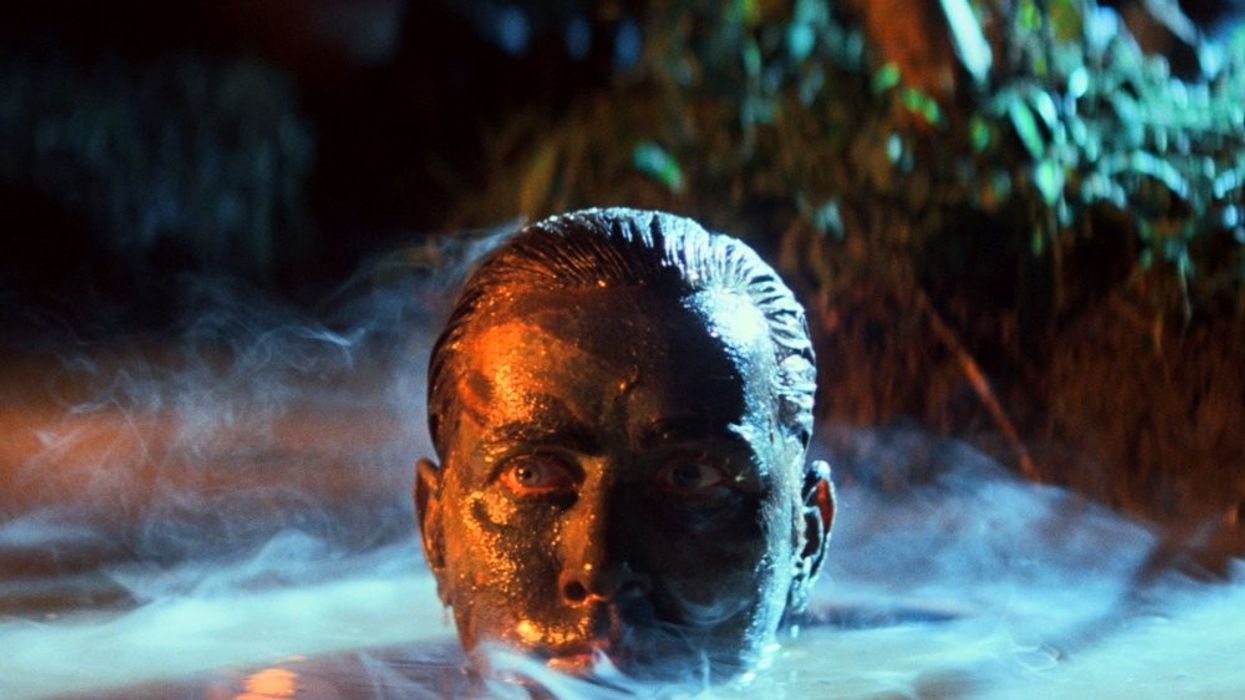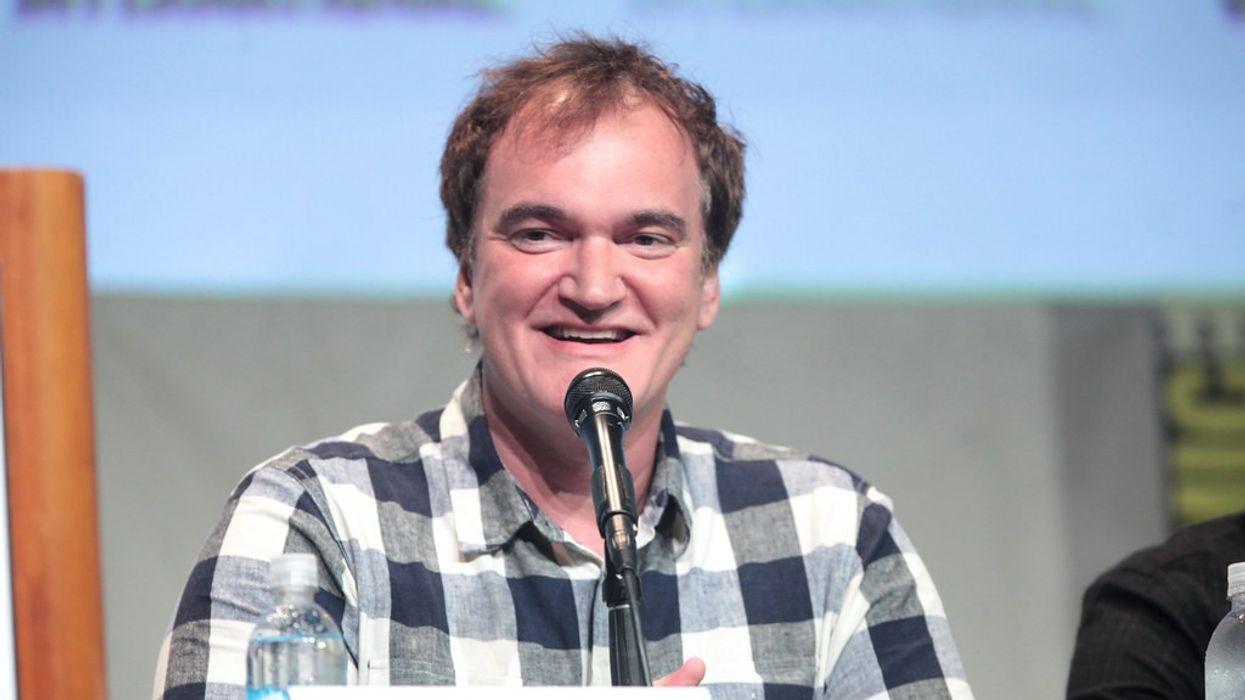Why 'Apocalypse Now' Might Be Dangerously Overrated
Apocalypse Now is on the AFI Top 100 list and is soon getting a new edit from Coppola for its 40th Anniversary. Many people adore it... I'm not of the same opinion.

Perhaps you've heard the infamous stories of the movie's shoot gone awry. That the budget of Frances Ford Coppola's war epic doubled while under production. Or maybe the story about how the director almost killed himself, and his star, Martin Sheen, had a heart attack. There's also the impressive narrative that has the movie being saved in the editing room and going on to be nominated for eight Academy Awards, win the Palme d'Or at Cannes Film Festival, land on the AFI Top 100 list, and be lauded for decades.
Now, on its 40th Anniversary, I'm here offer a counterpoint on Apocalypse Now. For all it's worship, is it possible that at the same time this was a dangerous enabling of bad behavior?
I'm not going to sit here behind my laptop and tell you that this is a bad movie. That would be crazy.
I can't wait to read the comments.
Why Apocalypse Now is Overrated
The first thing anyone knows about the movie, other than it is set during the Vietnam War, is how hard it was to make. It's like a legend that permeates from Hollywood out into the ether. For me, that legend, and the documentary that covers it, Hearts of Darkness: A Filmmaker's Apocalypse, is way more enthralling than what actually ends up on screen. But let's go through the risks to give the movie a fair shake.
The Risks
John Milius wrote the screenplay in 1969. He had wanted to serve in Vietnam but was not allowed because of his asthma.
Instead, he went to USC, where one of his professors told the class "no screenwriter has ever done a decent adaptation of Hearts of Darkness" so he set out to tackle the subject matter. He changed the location of the novella from Africa to Vietnam and set off to make his movie... with George Lucas.
Coppola, a friend of Milius and Lucas, thought George was the right person to handle the subject matter, but Lucas got too busy on a movie called Star Wars, and the script fell back into Coppola's lap.
Coppola was coming off The Godfather, Part II and The Conversation, two of the greatest movies of all time, and he wanted to take the audience "through an unprecedented experience of war and have them react as much as those who had gone through the war."
So he and his team headed to the Philippines where, under a brutal government regime, they decided to film most of their movie. After Coppola met with then-president Ferdinand Marcos about the project, Marcos loaned helicopter gunships to the production.
During filming, Marcos had to recall the gunships for actual combat against a rebel army.
The shoot was supposed to be five months long but with a rebel war going on, inclement weather, and lots of bad luck, the film took a few years to complete.
Things got off to a terrible start as the island they were shooting on was hit by a typhoon that destroyed many of the sets. The bad weather delayed the shoot for eight weeks. By the time they could roll cameras again, Coppola and his crew were already $2 million over budget.
As they got back into shooting, star Martin Sheen suffered a heart attack. He was put on bed rest and they had to lie about his condition to keep the movie from shutting down. His brother filled in on some scenes until Sheen could walk again.
By the time Marlon Brando as Col. Kurtz got to set, he was overweight. So he didn't fit into any of the costumes, and he was deemed too out of shape for the production to shoot the original ending. Coppola had to work around it and Brando's ego. Brando hated Dennis Hopper, who played his cohort, so all their scenes had to be shot separate.
As the money spiraled over budget, Coppola began investing his own money -- at least $30 million -- into the movie, mortgaging his home and doing whatever means necessary to keep the production going.
Aside from Sheen's health and his own funds, Coppola also risked his own mental health, saying:
“My film is not a movie. My film is not about Vietnam. It is Vietnam. It’s what it was really like. It was crazy. And the way we made it was very much like the way the Americans were in Vietnam. We were in the jungle. There were too many of us. We had access to too much money, too much equipment, and little by little, we went insane.”
In the end, Apocalypse Now wound costing over $31.5 million.
Egomania Now?
I'm not going to sit here behind my laptop and tell you that this is a bad movie. That would be crazy. But I think a lot of why I feel the movie became lauded is the legendary struggle to make it. Coppola compared to an actual war where people died.
That's... a bit of a reach. But a romantic one, certainly for filmmakers.
Let's talk about the impressive aspects of the movie: the cinematography and sound design are amazing. The editing is a feat unto itself, considering Coppola maybe shot over a million feet of footage.
But on the other hand, this shoot almost killed an actor, consistently put the crew in danger, and enabled a terrible dictator inside the Philippines.
Dangerous on-set behavior is costly beyond the budget and the shooting schedule. Sadly it can even cost human lives.
The world abhors what happened on the set of the Twilight Zone movie. When casts and crews sign up to work on a feature they expect that certain egos and goals will not run wild- that they will be taken care of. The truth is... Apocalypse Now was one bad helicopter shot away from killing people. It almost killed the lead actor. That opening scene? That was Martin Sheen – then an alcoholic bombed out of his mind – stumbling around while Coppola screamed direction at him. The mirror break is real. So is Sheen's blood.
That just feels like a footnote, a piece of imdb trivia. But shouldn't it be part of what we talk about when we talk about this movie?
The commitment to executing the material bordered on insanity. The New York Times ran an article saying "Coppola Risks $22Mil Fortune on Movie" and we latched onto that narrative.
Coppola put up his house and risked it all. Although... there is some question to that as well...
Turns out Coppola had a side conversation with George Lucas who was going to buy Coppola's house and sell it back to him in case of an emergency. And Coppola has said in interviews from the time that he had zero worries because he was so rich back then, that he would have made all his risked income back in residuals off his other movies in only a year or two.
You can hear a lot of these clips in the podcast Unspooled, where they cover the movie.
While the footage from Apocalypse now is astounding to look at, it doesn't have the realism or gut-wrenching truth that movies like Platoon, Coming Home, or Born on the Fourth of July espouse. It's somewhere between an attempt to represent the Vietnam war and an attempt to adapt a story that had nothing to do with the Vietnam War.
Coppola told the AP this:
The Vietnam War was different than other American wars. It was a West Coast sensibility rather than an East Coast sensibility. In war movies before “Apocalypse,” there was always a sort of Brooklyn character, an East Coast and Midwest personality. In “Apocalypse Now,” it was LA and it was surfing and it was drugs and it was rock ‘n’ roll so it was more of a West Coast ambiance to the war. In addition, there were many sort of odd contradictions that related to the morality involved. There was a line I once read that’s not in the film but to me it sums up the meaning of the movie. It was: “We teach the boys to drop fire on people yet we won’t let them write the word ‘f---’ on their airplanes because it’s obscene.”
That's a great line, and it suggests there was an attempt on the filmmaker's behalf to tell a version of the story of this war. But it's not really a fair depiction in so many other ways... so is the Vietnam War here metaphor? Or what?
It could explain in part why there have been so many cuts and recuts. It suggests a lack of confidence in the message.
It is no coincidence that the best parts of the movie come during the middle act, when the Willard's crew meet up with Kilgore and talk surfing.
Milius was an avid surfer and it seems like he's writing from his most confident there. The juxtaposition is great because, knowing he was never in war and wrote this with the war still going on, he shows what real war would look like to a surfer who just showed up and doesn't understand what's happening around him.
As our surfer gets deeper and deeper, all he learns is that war is hell. The personal drifts away because you can tell these guys aren't sure what part of this story should be personal to them.
Are they mad at America? At Capitalism? At the military-industrial complex?
Or are they obsessed with the way things look?
It's hard to tell where Apocalypse Now's mind is, which is maybe part of what has fascinated viewers for so long, but to me, it feels a bit more like a mistake and lack of intentionality. Not a real stroke of genius...
What happened in Hollywood after Apocalypse Now
There's no denying that Apocalypse Now went on to critical and financial success. All the bets paid off, with the movie grossing $150 million worldwide and frequently being listed as one of the best films ever. Still, the impact of the Hollywood director as a crazed artist still holds up today.
It's why Heaven's Gate bankrupted a studio. Why we tolerated Bertolucci's horrific behavior on Last Tango in Paris, and why it took so long to get the #MeToo movement started and to talk about safer practices on set.
In many ways, this movie defined the modern era. It's when studios realized they needed to take more control, to find budgetary limits, and to maximize payoffs for what's invested.
Does that come with other problems?
Of course. To many, the 1970s were the hey-day of filmmaker-first filmmaking. It got a little bit out of control though, and the filmmakers became their own worst enemy.
Coppola and others might lament the lack of new voices rising, but a lot of those problems arose from his behavior and wonton spending.
Again I'm not here to tell you if Apocalypse Now is a good or bad movie. That's everyone's call to make for themselves.
At No Film School were interested in peeling back the layers on the film, it's production and talking about it's effects to the craft as a whole.
When we laud the movie do we talk about some of these other aspects that may have helped put an end to the era of filmmaking we miss? Do we talk about safety practices? It's important to keep it all in mind and learn as much as we can.
What's next? Old vs. New Testament: 'First Reformed' & 'Taxi Driver' Deconstructed!
Paul Schrader is interested in life, death, humanity, God, and punishment. We theorize how his message has changed over the past 40 years.
Learn how by clicking the link!












